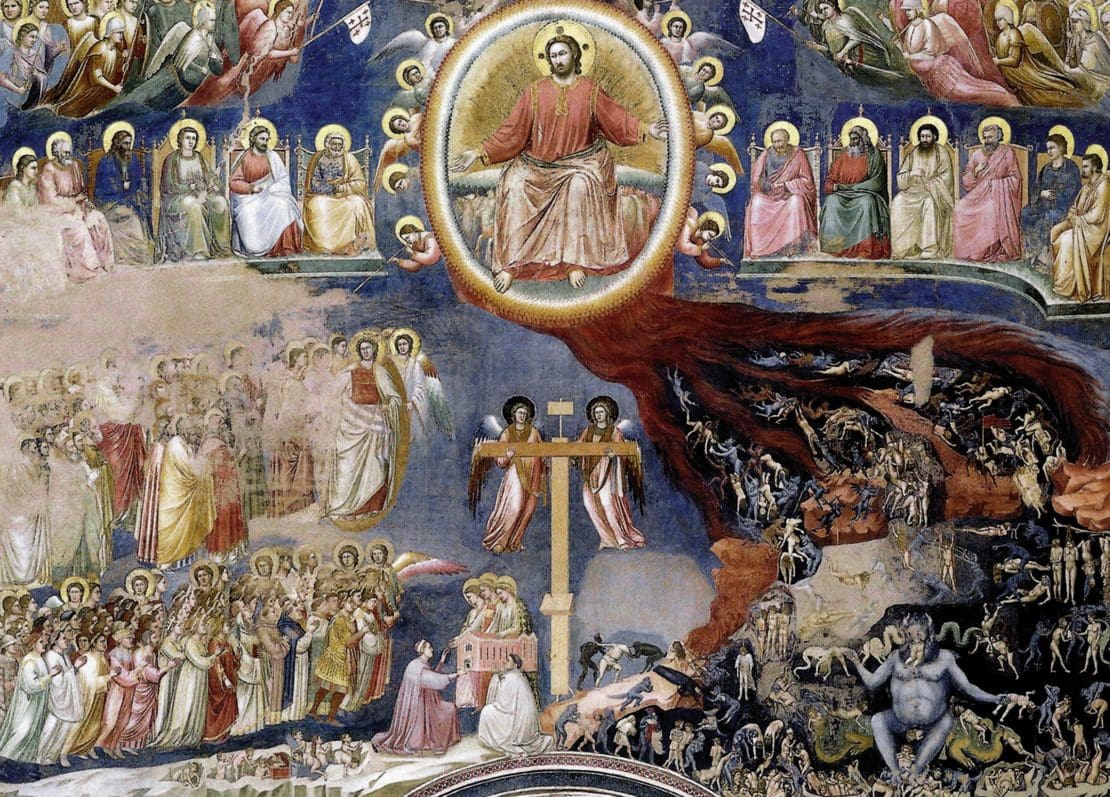Embracing the Covenant
I want to reflect on our previous post about covenants and composite nature. As a Catholic man who lives with SSA, for me, it is of the utmost importance to understand the theological and philosophical meaning of sexuality and my relationship with God considering my sexuality. Let me start with the concept of a covenant.
What is a covenant? In its most basic sense, it is an agreement between two parties that brings about a relationship of commitment. In a biblical sense, it is binding promises between God and his people. Throughout salvation history, God has made covenants with man in preparation for his greatest covenant. The covenant referred to here is the covenant made through the humanity and divinity of Jesus Christ allowing us to share in the life of the Trinity, God’s very nature. While God is always faithful to his covenants to the end, we are not.
Sacred Scripture begins with the creation of man and woman in the image and likeness of God and concludes with a vision of “the wedding feast of the Lamb.” Scripture speaks throughout of marriage and its “mystery,” its institution and the meaning God has given it, its origin and its end, its various realizations throughout the history of salvation, the difficulties arising from sin and its renewal “in the Lord” in the New Covenant of Christ and the Church.
Catechism of the Catholic Church § 1602
The nuptial covenant between God and his people Israel had prepared the way for the new and everlasting covenant in which the Son of God, by becoming incarnate and giving his life, has united to himself in a certain way all mankind saved by him, thus preparing for “the wedding-feast of the Lamb.”
Catechism of the Catholic Church § 1612
As a human person, I am a part of the promises or vows that God makes with his people. I did not want to believe that God’s scriptural covenants included me. I sought to define good and evil for myself, like our first parents, and I made a covenant unto myself in which God approved me in my homosexual desires. And despite the New Age teaching of radical freedom, I could not contract my own covenant with God. God is not whatever I make him to be. He does not enter into a covenant because I tell him to do so.
For many years as I pursued romantic relationships with men, I was wooed away from the covenant, as I was unfaithful to my Creator. My homosexuality was a particular form of adultery, a way of cheating on my covenant with God. There was no physical restraint of my lust, just as the Israelites did not have restraint when Moses went up to Sinai. I eventually turned away from God and his covenant. I went out from my beloved, “Seeking out another suitor than the one who had wooed them” My knowledge of the truth and the pride which motivated me to disregard his covenant I now see, “as worse than the sin of Adam, because the people [I] should have known better.”
There is something universal in the romantic comedy trope of the false suitor. This is the never-failing blockbuster formula of the woman choosing the wrong guy at the beginning of the movie. He always seems like the perfect guy on paper. But inevitably he reveals his true colors, and the woman realizes at the end that her loyal male friend is the one she was supposed to be with the whole time.
This is my particular story of SSA, but in a much broader sense, it is “a cosmological truth, written into the very nature of creation.” It is the story of choosing a false suitor over our Lord. I had many individual false suitors in the same-sex relationships I pursued. Until my search for the next false suitor was ended, I could not hear the voice or see the face of my real suitor. It wasn’t until I ended my active life of homosexuality that I realized I was meant to be in relationship with Christ. That I had been called into the greatest covenant, in which God took on human flesh that he might raise me up to share in His Divine Life.
God who created man out of love also calls him to love the fundamental and innate vocation of every human being. For man is created in the image and likeness of God who is himself love. Since God created him man and woman, their mutual love becomes an image of the absolute and unfailing love with which God loves man. It is good, very good, in the Creator’s eyes. And this love which God blesses is intended to be fruitful and to be realized in the common work of watching over creation:
Catechism of the Catholic Church § 1604
In the same way as the Israelites at Sinai, my homosexuality was idolatry. I created a covenant that placed pleasure over God’s will and love, violating his covenant with me. Like the Jews who committed ‘adultery’ in the form of a molten calf on the wedding night of their Mosaic covenant. I chose to pursue my sexual pleasure with men, a similar ‘adultery’, in contradiction to my baptismal covenant. Wooed by the pleasures and lies of the world, I was choosing the false God of homosexuality over the true God.
The entire Christian life bears the mark of the spousal love of Christ and the Church. Already Baptism, the entry into the People of God, is a nuptial mystery; it is so to speak the nuptial bath which precedes the wedding feast, the Eucharist. Christian marriage in its turn becomes an efficacious sign, the sacrament of the covenant of Christ and the Church. Since it signifies and communicates grace, marriage between baptized persons is a true sacrament of the New Covenant.
Catechism of the Catholic Church § 1617
And yet, strangely enough, I began to pursue chastity. I didn’t choose chastity, it chose me. By coming to accept that God had made an agreement with his people, I started to feel the inclination or urge to honor my part of the agreement. Since the agreement includes a prohibition against me having sex with men, with the aid of spiritual guidance and frequent use of the sacrament – especially confession and worthy reception of the Eucharist – I stopped acting out and discovered the fullness of my sexuality.
Christ is the center of all Christian life. The bond with him takes precedence over all other bonds, familial or social. From the very beginning of the Church, there have been men and women who have renounced the great good of marriage to follow the Lamb wherever he goes, to be intent on the things of the Lord, to seek to please him and to go out to meet the Bridegroom who is coming. Christ himself has invited certain persons to follow him in this way of life, of which he remains the model.
Catechism of the Catholic Church § 1618
Chastity means the successful integration of sexuality within the person and thus the inner unity of man in his bodily and spiritual being. Sexuality, in which man’s belonging to the bodily and biological world is expressed, becomes personal and truly human when it is integrated into the relationship of one person to another, in the complete and lifelong mutual gift of a man and a woman.
Catechism of the Catholic Church § 2337
It was not only a pure legalism that urged me to stop pursuing romantic relationships with men. I came to experience that our external actions manifest an internal spiritual reality. Living chastity through abstinence of sex with men helped reveal to me the intended purpose of physical sexual intimacy. “Within marriage, the physical intimacy of the spouses becomes a sign and pledge of spiritual communion.”
Catechism of the Catholic Church § 2360 & 2337
Sexual pleasure is to be reserved and expressed in a covenantal relationship between a man and a woman, a relationship of marriage that is open to the gift of life. It mirrors humanity’s life-giving relationship with our Creator. Abstaining from homosexual relations is not empty obedience to the law for the sake of the law, rather in conforming to the fullness of the truth of sexuality and sexual pleasure my chastity becomes my ‘sign and pledge’ to God and an affirmation of my ‘spiritual communion’ with my Beloved.
Catechism of the Catholic Church § 2360
One thing I have taken home from the last few posts on the composite nature of man is that my actions affect both my material body and my spiritual eternal soul. Like the sacraments that have both spiritual and material components, I too am made up of matter and spirit. What I do with my material body should correspond to my spiritual nature. By living a chaste life, I am living in accordance with God’s covenant, both in my external actions and in my inner life. By seeking first to love God – keeping his commandments – and humbly repenting when I fall short, I have found a deep sense of peace that the wisdom of the world never provided.
According to faith, the disorder we notice so painfully does not stem from the nature of man and woman, nor from the nature of their relations, but from sin. As a break with God, the first sin had for its first consequence the rupture of the original communion between man and woman. Their relations were distorted by mutual recriminations; their mutual attraction, the Creator’s own gift, changed into a relationship of domination and lust; and the beautiful vocation of man and woman to be fruitful, multiply, and subdue the earth was burdened by the pain of childbirth and the toil of work.
Catechism of the Catholic Church § 1607
Resources:
Catechism of the Catholic Church:
Matrimony § 1601-1658
The Sixth Commandment § 2331-91.
Summary § 1659-1666 & 2392-2400
https://www.vatican.va/archive/ccc_css/archive/catechism/ccc_toc.htm



(4) Comments
Peter Caracci
I appreciated your article. It gave inspiration and truth.
Regards,
Pete C.
Josee
As a member of Encourage with a loved who chooses not to live in covenant with the Lord, you give me hope. I am humbled by your commitment. May God be with you.
Janice
Thank you for your beautiful witness to Truth and Love.
Ashlei
I just want to say this is a beautiful article. I really appreciate the breakdown of every angle. I’m currently struggling with a few of these things myself. I just ask that you pray for me and I hope you find your way as well. It seems you have though. May the best wishes come your way. God bless you!